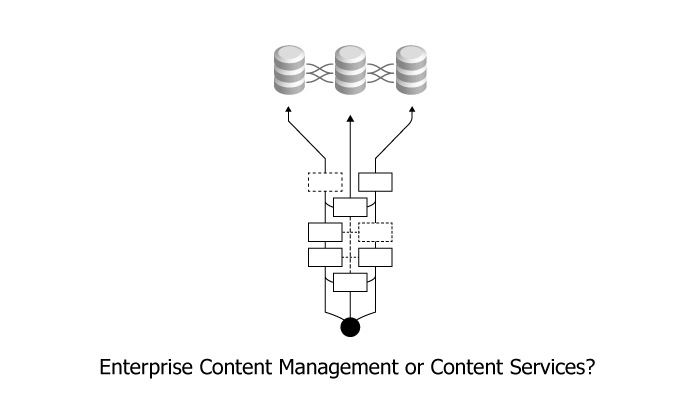 It’s too early yet to know what effect it will have on our industry, but a recent pronouncement by a Gartner analyst has certainly garnered some attention. He stated — referring to the term not the business practice — that “ECM is now dead (kaput, finite, an ex-market name), at least in how Gartner defines the market. It’s been replaced by the term Content Services.” And by “finite” I think he means “finis.” Either way, quite a strong statement!
It’s too early yet to know what effect it will have on our industry, but a recent pronouncement by a Gartner analyst has certainly garnered some attention. He stated — referring to the term not the business practice — that “ECM is now dead (kaput, finite, an ex-market name), at least in how Gartner defines the market. It’s been replaced by the term Content Services.” And by “finite” I think he means “finis.” Either way, quite a strong statement!
Why the change? The analyst’s blog post goes on to say that the original and long-held ECM ideal was that organizations should have one enterprise-wide platform that could help it meet certain fundamental content management goals, namely:
- Regulatory compliance and risk management
- Retention and dissemination of business knowledge
- Cost and process efficiencies
- Innovation and new ways of working
That ideal has proven very hard to achieve. In fact, the analyst, an industry veteran, says he has rarely come across an organization that has fewer than three independent data repositories in nearly 20 years in the business. Consequently, Gartner is now looking at (and referring to) our industry as content services, a discipline that is broken down into three areas: Content Services, Content Applications, and Content Platforms and Components.
What’s in a Name?
Of course what we call our field is, to a large extent, irrelevant. It’s the results we produce for our clients that matter. ECM… content services… whatever you call it, if the systems we architect give them better, faster, safer, more efficient access to their data and put in place policies and procedures for better managing it, we’ve made a positive difference in their operations.
However, the blog post did make a good point in saying that “the Content Services approach overrules the notion of consolidation for its own sake. It’s strategic, rather than technology oriented and provides an evolved way of thinking about how to solve content related problems.” It’s safe to say that consolidation on its own has never helped a company operate more effectively. It’s the details of how content is consolidated that matter — and that has been, and will continue to be, our focus.
For our part, we won’t be eradicating “ECM” from our website anytime soon. The term is still a very clear descriptor of the kinds of systems we build and what our clients use them for. Just know that if your organization is in need of content services, we’re here to help. And, of course, we’ll continue to monitor the conversation around ECM and content services, and contribute to it where appropriate. It’ll be interesting to see in six months or a year if the industry as a whole has followed Gartner’s lead.
About the Author
 Charles Weidman is the President and CTO of Buddha Logic. Charlie has over two decades of experience in the design, development and implementation of content services and business process management solutions. He is also an expert in robotic process automation. Charlie founded Buddha Logic with the idea that well-architected digital document capture and management processes are both beautifully simple and powerfully logical. Find and connect with Charlie on LinkedIn.
Charles Weidman is the President and CTO of Buddha Logic. Charlie has over two decades of experience in the design, development and implementation of content services and business process management solutions. He is also an expert in robotic process automation. Charlie founded Buddha Logic with the idea that well-architected digital document capture and management processes are both beautifully simple and powerfully logical. Find and connect with Charlie on LinkedIn.
